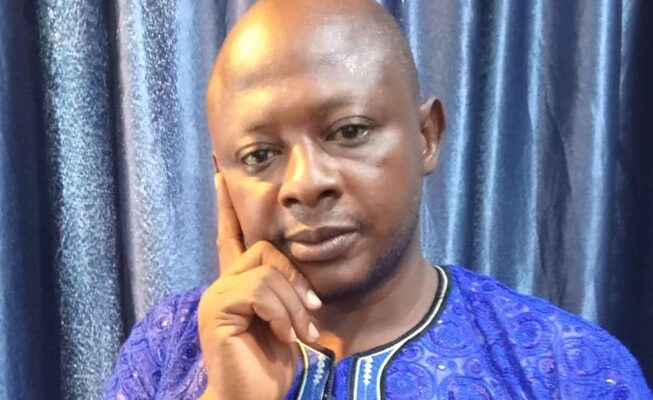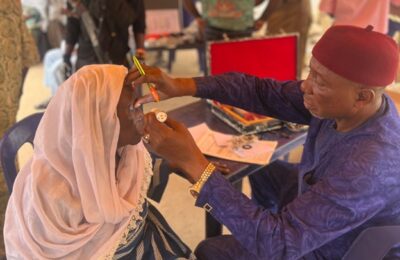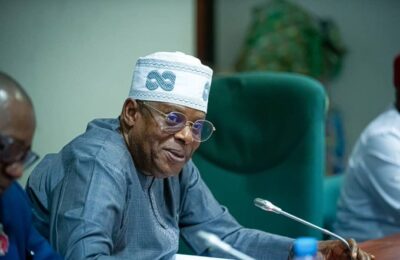The tragic trajectory of Igala politics did not commence at the ballot box—it began in the shadowy corridors where ancestral honour was bartered for ephemeral power. Today, the central question haunting the East of Kogi is not merely who claims Igala identity, but who embodies it in spirit and temperament. For in the crucible of Kogi politics, what once stood firm like the Idah monolith has begun to crumble into fragments of betrayal.
We know them—the perfumed orators of political rallies, whose thunderous rhetoric during campaign seasons masks the sycophantic whispers they trade behind closed doors. They do not merely kneel—they prostrate, forehead to marble, begging Ex-Governor, Alhaji Yahaya Bello for political leftovers. These men, draped in the robes of false fidelity, turned themselves into jesters in the court of a ruler whose policies dismantled their ancestral seat of influence.
Some among them went further—they clandestinely leaked strategic intelligence to adversaries of Igala resurgence, not under duress, but by calculated treachery. They wore two faces: one for the people, another for power. Their conduct was a tragedy of Shakespearean proportions, and the consequences reverberate across the Igala heartland like a dirge played on broken flutes.
Indeed, “Aluduu Ki Olemi ti Ododo illa gbane n, Ogecha ajedo tikodu ki dufu—lies may bloom momentarily, but truth is the enduring tree. And the truth is this: those who dance with betrayers should not be surprised when they are handed masks and asked to perform against their own people.
Frantz Fanon, with clairvoyant precision, declared: “Each generation must, out of relative obscurity, discover its mission, fulfill it, or betray it.” What we witness in the political class of the Igala nation is not the confusion of a people lost, but the orchestration of a betrayal meticulously executed by insiders. The gatekeepers became looters. The emissaries of the people became errand boys for their subjugators.
Once, the Igala Kingdom stood as a bastion of unity, strength, and cultural gravitas. It negotiated with empires, resisted foreign incursion, and birthed warriors who fought with both sword and wisdom. But in this modern iteration, its political custodians have turned statecraft into a parody. They quote ancestors by day and undermine ancestral values by night. They host press conferences in Igala while drafting betrayal in English and Ebira.
The obsession with “Igala by blood” has birthed a generation of impostors—men and women whose veins may carry the blood of Attah Ayegba but whose hearts beat for foreign gods. Their identity is a costume, their loyalty a commodity. They show up in Idah with crowns of hypocrisy, promising restoration while digging deeper graves for Igala relevance.
Let it be said: an Igala name does not confer loyalty. A son of Omala who sells out his constituency for a handshake in Government House is not Igala by temperament. Ralph Waldo Emerson’s words echo here with solemn clarity: “What you do speaks so loudly I cannot hear what you say.”
Today, many in Kogi East do not trust those who shout the loudest. They have learned—often through tears—that the real patriots are rarely the noisiest. Those who feed off the suffering of their own people, who receive empowerment to pacify dissent rather than correct injustice, have become the true antagonists of the Igala narrative.
A reawakening is upon us, though. Among the ashes of betrayal, a new generation of Igala sons and daughters is rising—more interested in substance than surnames. They are not moved by empty declarations but by deeds. They seek Igala politicians not merely by descent, but by disposition—men and women who carry the Igala destiny not in their mouths, but in their bones.
In the days of old, when an Igala man said, “I stand by my father’s name,” it was a sacred vow. Today, some brandish that name as a decoy, while their hands sign documents that compromise the land. Like a palm wine that forgets the tree from which it flowed, they have become sweet to strangers and bitter to their own kin.
The masquerade that dances off-beat must be unmasked. The political actor who performs allegiance in public but scripts betrayal in private must be named and shamed. Igala politics must evolve—no longer a theatre of deception, but a crucible of authenticity. The era of tribal cosmetics must give way to an era of temperamental fidelity.
Chinua Achebe warned: “The problem with Nigeria is simply and squarely a failure of leadership.” That same diagnosis applies to the Igala elite. For too long, leadership has been mistaken for inheritance. But the future belongs not to the inheritors of names, but to the cultivators of courage.
The Igala political resurrection must not be a nostalgic return to lineage but a radical redefinition of merit. It must prioritize character over kinship, resilience over rhetoric, and service over sycophancy. Let the people no longer chant names but demand deeds. Let them no longer be seduced by oratory, but galvanized by integrity.
As the river of reckoning rises, those who have floated on lies will be swept away. What remains will be those anchored in truth, forged in loyalty, and refined by the fire of generational responsibility.
For in the theatre of politics, only those who are Igala—not just by blood, but by courage, conviction, and temperament—deserve a place on the stage.
– Inah Boniface Ocholi writes from Ayah – Igalamela/Odolu LGA, Kogi state.
08152094428 (SMS Only)




